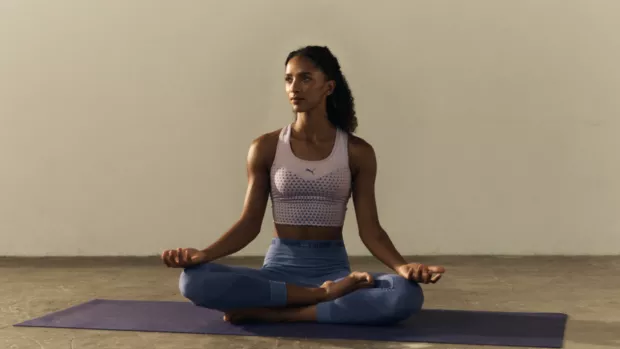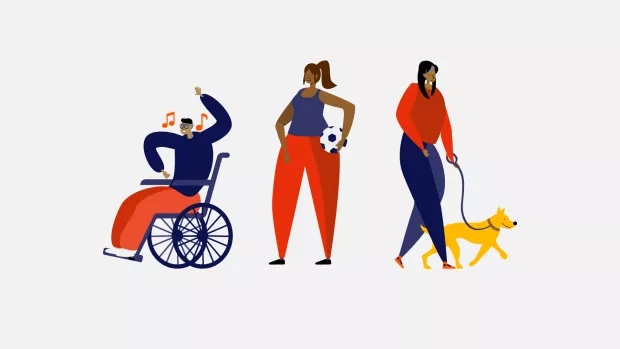
Adapting how I exercise with MS has brought me new happiness
When MS started to affect Krishna’s balance and coordination she thought she’d have to give up the exercise she loved. But she’s found adapting her approach to keeping fit benefits both her physical and mental wellbeing.
Physical health helps my mental health. I don’t mean doing extreme workouts or running marathons. I mean keeping physically active in whatever small ways I can manage.
There are many days where I feel I just can’t be bothered… because of sheer laziness or because my legs feel so tired and heavy. But it’s especially on those days when I tell myself: ‘If I don’t use it, I’ll lose it!’
A feeling of dread
When I was diagnosed with relapsing remitting MS, I dreaded what might lie ahead for my health and independence that I'd always taken for granted.
I found the first few years very difficult and often got very depressed. Until I accepted that life had changed. And though I can’t do everything I once did, there are still many things I can do.
Taking on a new challenge
I used to go to the gym regularly and enjoyed class workouts like body pump, spin, step aerobics – the list goes on. I really enjoyed the group dynamics and the loud music. Also, it gave me a reason to eat that ginormous chocolate bar without feeling guilty!
But after MS, I lost my coordination and balance so I couldn’t take part in these classes. I couldn’t use the gym for running (which I’d always enjoyed doing). But I could use the gym for walking on the treadmill instead.
To challenge myself further, I took up swimming lessons. I was never a strong swimmer. But now that my balance is an issue, swimming gives me that same feeling of endorphins (happy hormones) without the risk of falling.
You don’t have to move fast to feel good
Walking on a treadmill may not sound that exciting. But when I put on the music, and increase the incline, I feel very happy. After the first few minutes of walking I can feel myself smiling! I used to think it was the speed I enjoyed, but I now know it’s the exercise – no matter how slow. It keeps me from thinking too much about the condition and the limitations I now have to face.
Swimming is excellent, especially when I have the pool to myself at the gym. This hardly ever happens but it’s wonderful when it does! My legs feel like jelly, more so after doing a few lengths in the pool. I don’t mind that - being in the pool lets my body feel weightless! It’s a wonderful feeling.
I find great solace in practising yoga
Yoga isn't something I’d considered before, because I didn’t appreciate that you can do yoga with props. For example, you can use the wall to lean against or the back of a chair. I’ve also invested in some basic yoga props, like foam blocks, a yoga strap and a bolster.
Props help me achieve the poses yoga is known for. I really did think that with my lack of balance and coordination it would be impossible for me. But the number of adaptive yoga classes available is amazing – in person but also online. The half-moon is now a breeze for me and headstands are possible - with a little assistance from my husband.
I find Yoga is also a great mood enhancer. I miss it if I haven’t done some yoga in the day. It lifts my mood when I do it.
Taking inspiration from others
After I was diagnosed I read a book by Professor George Jelinek called Overcoming MS. It’s a book that brought me so much hope and determination to fight this condition by changing my diet and by keeping active, while also taking a disease modifying therapy (DMT). It’s a journey that my husband has supported me on throughout.
Keeping myself active is essential for my wellbeing. MS is a devastating and horrible condition, but I won’t let it dictate what I can enjoy. I just need to know, and accept, my limits.


